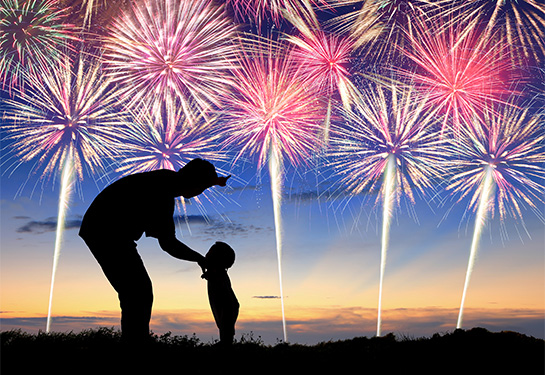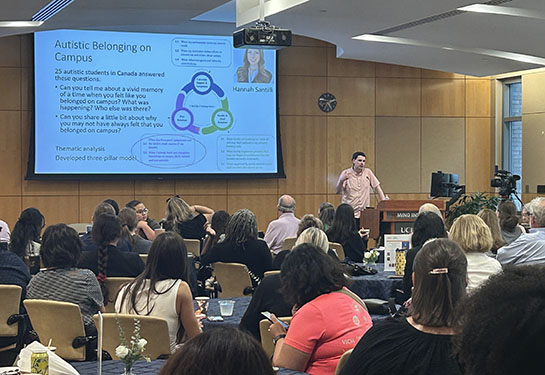Tips for a sensory-friendly July 4th
UC Davis MIND Institute expert offers tips to help kids with autism, other neurodevelopmental conditions enjoy the holiday
The Fourth of July holiday often includes fireworks and parades, backyard barbecues and neighborhood festivals – all of which can be overstimulating for some individuals with neurodevelopmental conditions like autism.
Sarah Dufek, an autism expert with the UC Davis MIND Institute, says there are ways to make some of the louder, more chaotic celebrations more comfortable.
“In many cases, preparation before an event, along with a few key supplies, can help a great deal,” she said.
Dufek, an assistant professor of clinical psychology in the Department of Psychiatry and Behavioral Sciences at UC Davis Health, offers these tips for families, which may be useful for Independence Day – and at many other times of the year:
- Keep it short. “Consider bringing your child for just part of an event,” suggested Dufek. “Maybe take your child just for the fireworks – or maybe take your child to the party or picnic but watch the fireworks from the car.”
- Location matters. “Try to create a situation where your child can retreat easily, such as a home with a view of fireworks, where a quiet room is available if they need a break from the noise and lights,” she explained.
- Preparation is key. Build excitement while helping your child know what to expect by reading Fourth of July-themed books and watching videos of fireworks “It can also be helpful to choose books or videos that incorporate your child’s interests,” Dufek said. “For example, if your child enjoys Disneyland themes, you could watch Disneyland fireworks displays on YouTube.” Social stories like this one, which provide step-by-step visuals of what to expect, can also be very helpful.
- Bring helpful supplies. If your child enjoys sensory or fidget toys, bring those with you. Art supplies or other favorite portable activities can be a positive outlet, too. Also consider headphones for children who are sensitive to loud sounds. Having plenty of familiar snacks and drinks available can also be helpful.
- Make safety a priority. During preparation, make sure to focus on safety around fireworks. During the event itself, you can also use visuals to help enforce safety. “For example, use bright caution tape to mark off areas your child should avoid in order to stay safe – this works for other children and adults, too!” Dufek said. “Ask other adults to consistently use a countdown when setting off a firework to ensure everyone knows what’s about to happen. If you’re celebrating near a body of water, it’s critical to make sure adults are acting as ‘water watchers’ in shifts to ensure water safety for children.”
- Ask for help. Be clear with other adults around you about how they can help make the event comfortable for your child. “Often, others want to help but don’t know how,” explained Dufek.
The UC Davis MIND Institute in Sacramento, Calif. is a unique, interdisciplinary research, clinical, and education center committed to deepening scientific understanding of autism and other neurodevelopmental conditions. It is a highly collaborative center, bringing together families, researchers, clinicians, community leaders and volunteers with the common goal of developing more personalized, equitable, and scientifically proven systems of support and intervention. The institute has major research efforts in autism, fragile X syndrome, chromosome 22q11.2 deletion syndrome, attention-deficit/hyperactivity disorder (ADHD) and Down syndrome. More information about the institute and its Distinguished Lecturer Series, including previous presentations in this series, is available on the Web at mindinstitute.ucdavis.edu.




